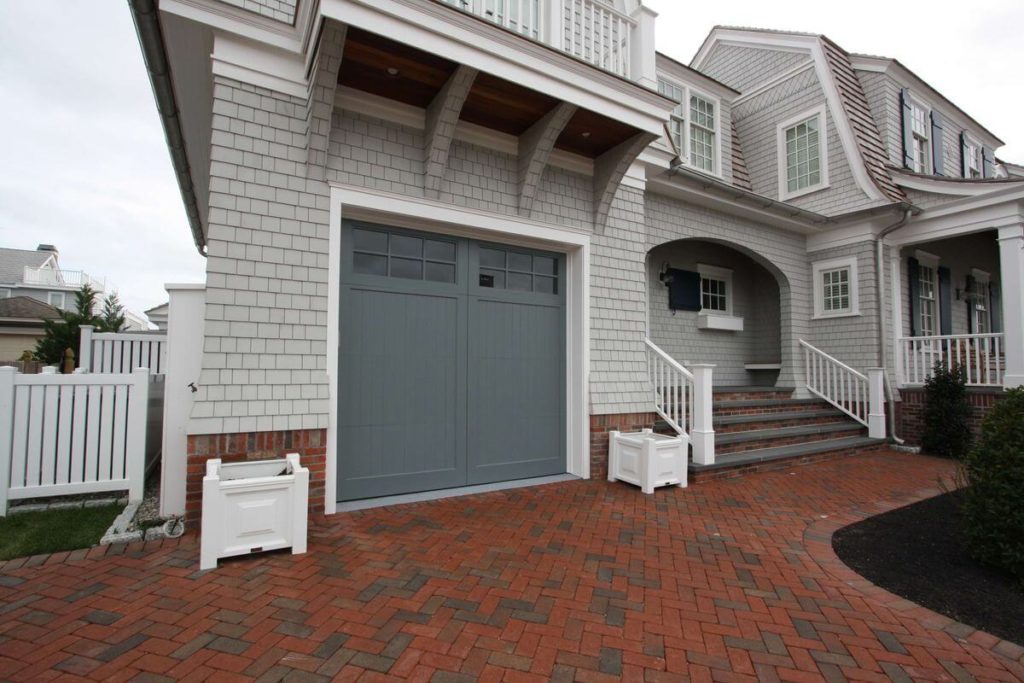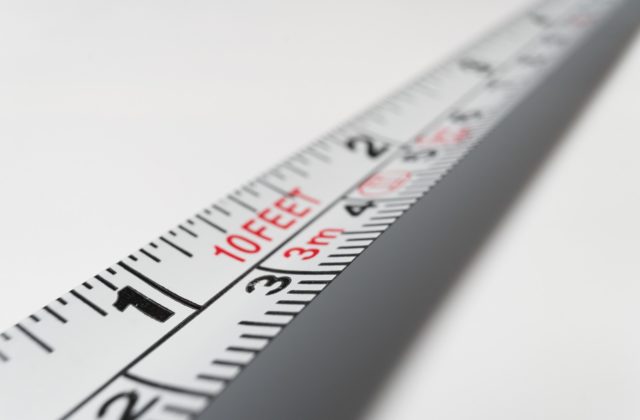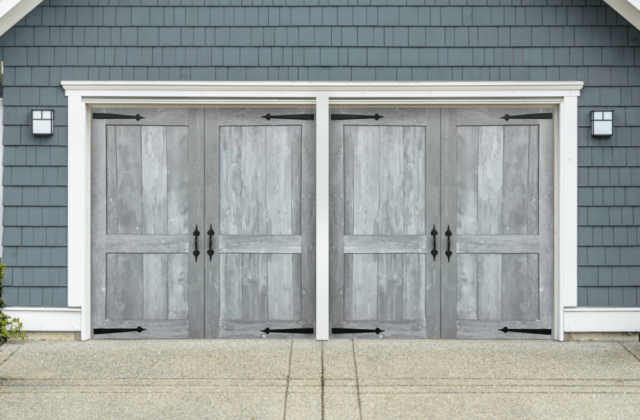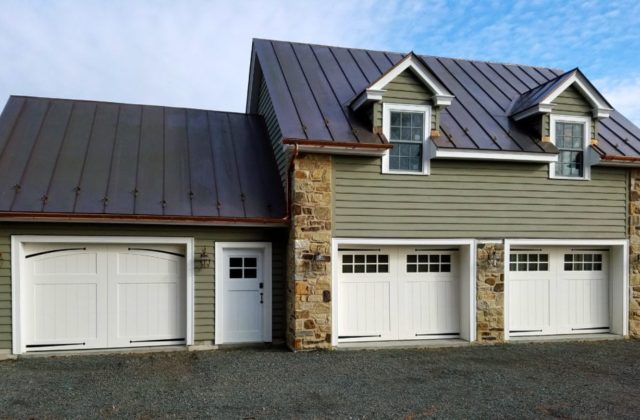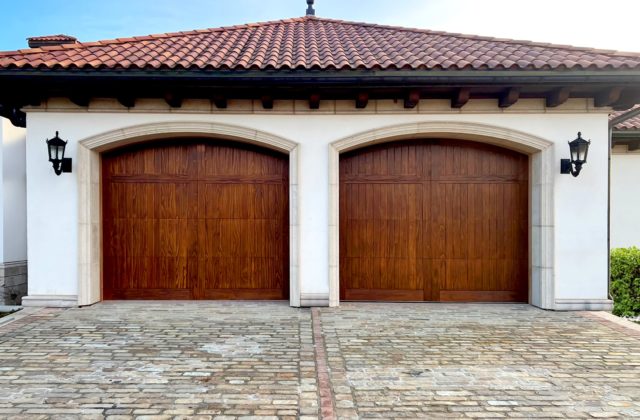For many homeowners, the garage is more than just a place to park your car or a simple storage space. Many people transform their garage into a space for woodworking, hobbies, or to work on their vehicles.
If you want to protect your garage floor, epoxy paints and coatings are the perfect solution. Along with preventing damage, concrete garage floor epoxy adds to your home’s aesthetic appeal and increases its resale value.
In this blog, we’ll take a closer look at epoxy floor finish options to help you make the best decision for your garage.
What is Epoxy?
Epoxy is a thermosetting polymer created by the chemical reaction between a resin and a hardener. When these two substances are mixed together, the curing process begins. Epoxy is both chemical- and corrosion-resistant and provides extremely strong adhesion due to polar bonding. It’s frequently used in products like thinner, primer, glue, and paint, which we’ll review in more detail below.
What is Garage Floor Epoxy Paint?
Typically made from latex acrylic, epoxy garage floor paint is thick and offers a matte or satin finish. While it was originally designed for industrial use, it’s frequently applied to garage and basement floors. A small amount of epoxy may be added, which is referred to as one-part epoxy. The addition of epoxy helps standard floor paint stand up to high-traffic areas, but it will eventually peel and flake regardless. Epoxy concrete floor paint is not an epoxy coating, which we’ll examine later in this blog.
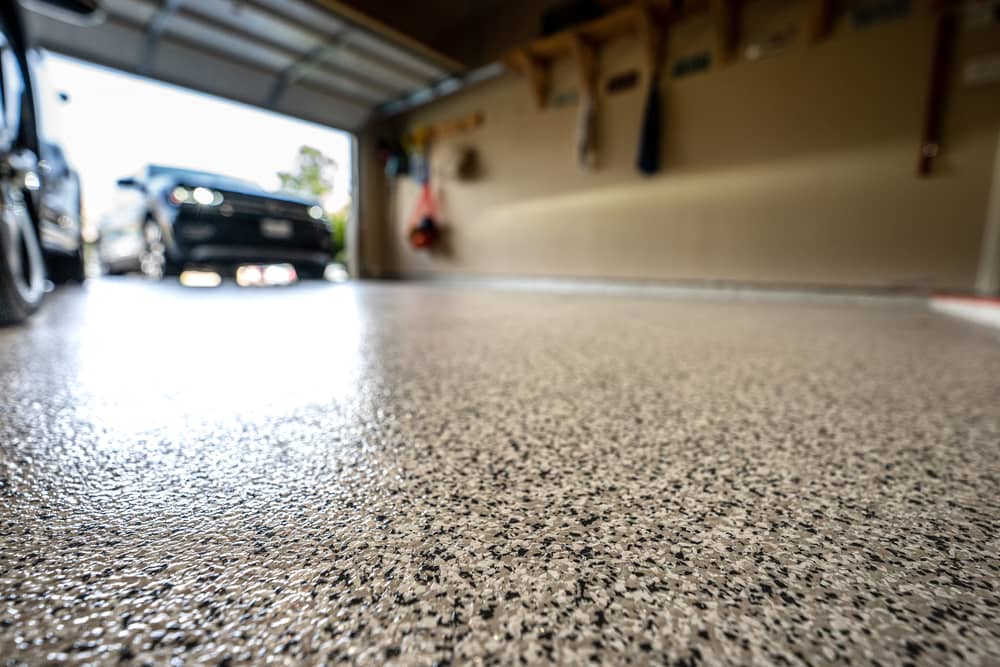
Pros of Garage Floor Epoxy Paint
Have you ever asked yourself, “Is an epoxy floor finish good for garage floors?” There are many benefits of choosing garage floor epoxy paint, which:
- Creates a tough, durable protective garage seal coating
- Is easy to clean with a mop, broom, or vacuum
- Is dust-resistant and safe for high-traffic areas
- Is ideal for garages because it’s corrosion- and chemical-resistant
- Is shock-, moisture-, and heat-resistant, so it protects against hot tires
- Creates an aesthetically pleasing shine and is available in a variety of designs/colors
- Is cost- and time-effective because it can simply be applied on top of your existing flooring
- Is a great choice for DIYers because it’s premixed and ready to apply immediately
Cons of Garage Floor Epoxy Paint
There are also several negatives to be aware of before answering, “What is the best garage floor paint?” and making a purchasing decision. Epoxy garage floor paint:
- Is slippery when covered with oil, increasing the chance of falls
- Can take several days to dry properly, lengthening the application process
- Will eventually need to be refreshed/repainted to maintain its appearance
- Is subject to staining depending on conditions
- Doesn’t completely seal the floor like an epoxy coating
- Is incompatible with most clear topcoats
- Can be expensive and time-consuming to alter or remove entirely
What is Garage Floor Epoxy Coating?
As mentioned previously, epoxy floor coatings are made up of two parts: an epoxy resin and a polyamine hardener. The combination of these two substances triggers a curing process that generates heat and hardens the mixture into an inert plastic. Depending on the particular coating combination, curing may take anywhere from a few minutes to several hours.
If you’re looking for the best epoxy floor coating for a garage, pay attention to the percentage of solids. The higher the solids percentage, the more epoxy the product will retain as it cures – and the thicker and more protective the final layer will be.
For example, an epoxy coating with 50% solids will lose 50% of the coating to evaporation as it cures. On the other hand, aliphatic coatings with 100% solids will retain 100% of the coating as it cures, making it a superior choice.
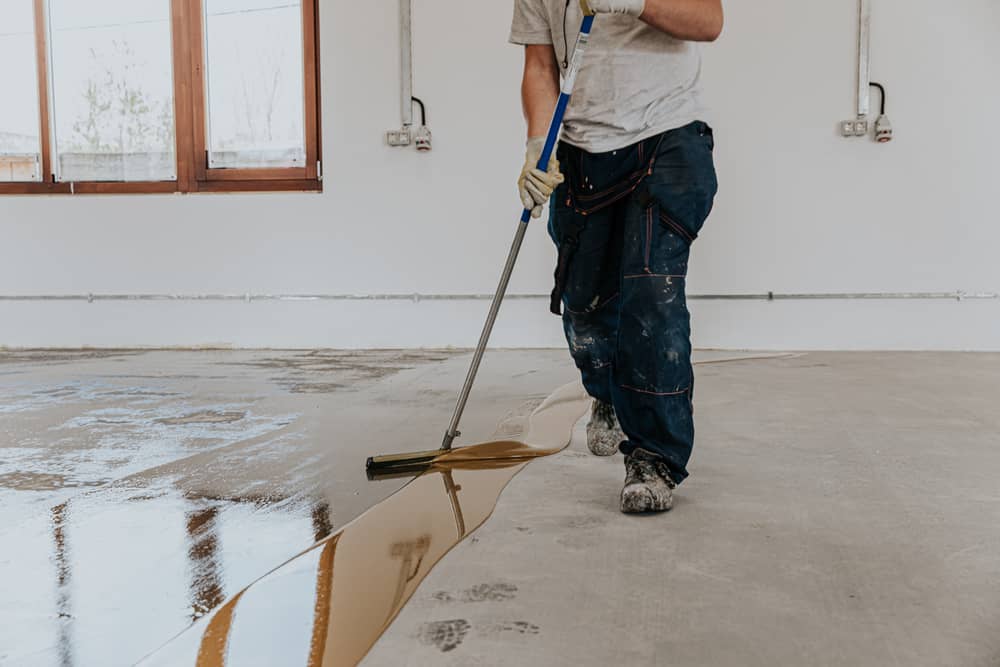
Pros of Garage Floor Epoxy Coating
Epoxy coatings are some of the best garage floor sealers on the market, and there are many benefits of choosing these products. Garage floor epoxy coating:
- Is stain-, chemical-, moisture-, scratch-, and abrasion-resistant
- Won’t be damaged by heavy rolling toolboxes, floor jacks, and jack stands
- Offers superior concrete adhesion as opposed to oil-, water-, enamel-, and acrylic-based paints
- Is moisture-, mold-, and mildew-resistant, making them perfect for any geographic location
- Is great for cold climates because it can withstand sub-zero temperatures, road salts, and deicing fluids that can easily damage concrete
- Is extremely durable with low porosity and high bond strength
- Is low-maintenance and easy to clean with a mild solution and water
- Completely covers minor concrete imperfections like small spider cracks and other flaws
- Lasts up to 20 years with professional installation and often comes with a 15-year manufacturer warranty
- Is a somewhat eco-friendly option because it requires few raw materials and doesn’t require frequent refreshing/repainting
Cons of Garage Floor Epoxy Coating
You should also be aware of some of the negatives of garage floor epoxy coatings before choosing a product for your home. Epoxy garage floor sealer:
- Is more expensive than epoxy paint, which can be purchased from a home improvement store and applied without assistance
- Usually requires professional installation because two chemicals must be mixed together
- May yellow over time depending on the resin type and amount of sun exposure
- Hardens quickly, but complete curing takes several days
- May show dust, debris, footprints, and tire tracks, especially with darker or extremely glossy metallic finishes
Which One is Best For Me?
Ultimately, it comes down to several things, including your budget and personal preferences.
Each option has benefits and drawbacks, and to help you with your research here’s a quick guide to break down each option.
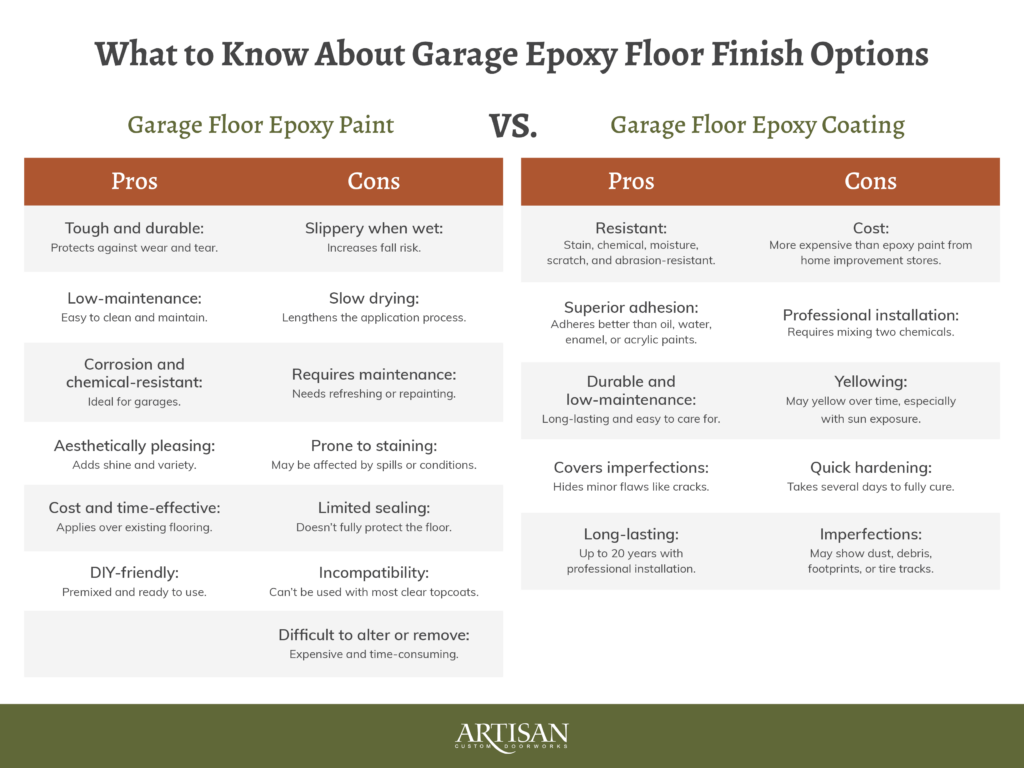
Types of Garage Floor Epoxy Coatings
There are several types of epoxy floor finishes. Each type has distinct pros and cons, and your choice depends on the look, feel, and performance you want from your garage floor.
1. Self-Leveling Epoxy Coatings
Typically applied to cracked, worn, or damaged concrete, self-leveling epoxy coatings freshen the look of your floor and add more durability. They’re available in a variety of colors and gloss levels to match your unique preferences.
2. Self-Dispersing Epoxy Floor Coatings
Self-dispersing epoxy coatings are ideal for heavy-duty applications like truck traffic and forklift use due to their durability. The quartz sand variant offers superior anti-slip properties. Beyond safety, quartz-filled coatings provide a decorative finish that works in offices, garages, restrooms, and schools.
3. Terrazzo Epoxy Floor Coatings
Terrazzo is a decorative coating made of aggregates and a mixture of epoxies to create a thin-set bond. Its decorative properties and easy-to-clean characteristics make this an ideal coating for large hallways, office buildings, commercial or school building entrances, and even homes.
4. Metallic Epoxy Coatings
Like the name suggests, these coatings include metallic particles, which add depth and shine to concrete surfaces. They’re available in a wide range of styles and blend industrial strength with a sophisticated look, making them popular in high-end garages.
5. Quartz Epoxy Flooring
These coatings contain attractive quartz grains and are often used in high-end garages that receive a lot of visitors. They’re also extremely durable and slip- and spill-resistant, making them perfect for high-traffic areas.
6. Novolac Epoxy Coatings
Novolac is a synthetic chemical that’s often used as a replacement for natural floor resins like shellac. Once cured, novolac provides enhanced heat and chemical resistance while also repelling chemicals, acids, and other harsh elements.
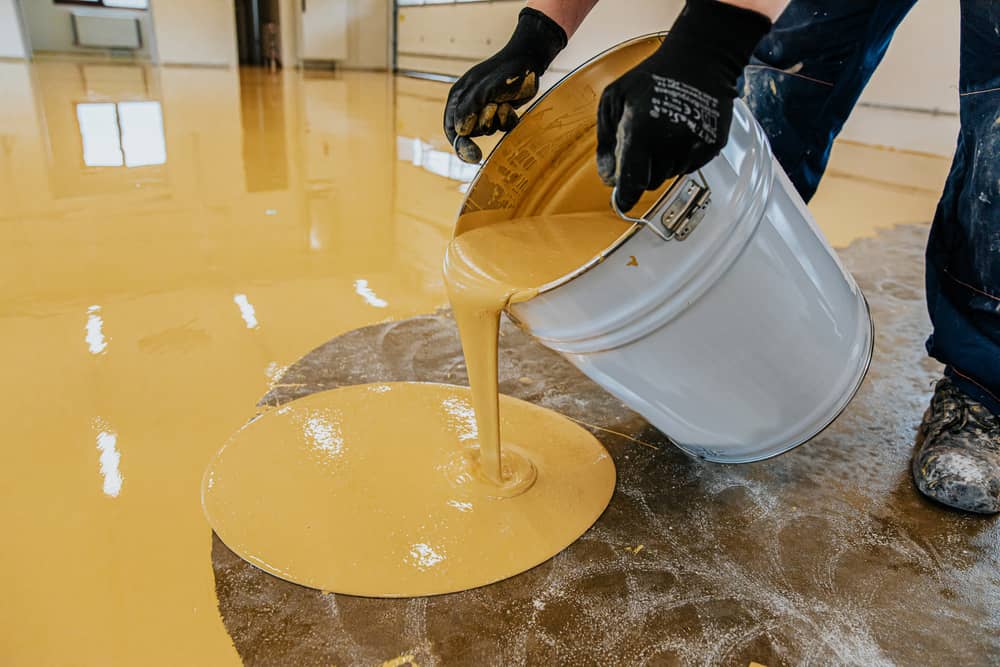
How To Seal Epoxy Garage Floors
Once you decide on the perfect epoxy floor finish, it’s time to apply it to your concrete garage floors. While we recommend hiring a professional, you can also opt for a do-it-yourself epoxy floor if you’re experienced with home renovations.
Preparing Your Concrete Floor
Thorough floor preparation is crucial for optimal epoxy adhesion. Clean the concrete surface, repair any damage, and create a suitable profile using techniques like grinding or acid etching.
Moisture Testing and Priming
Conduct a moisture test to ensure proper bonding. A primer is then applied to penetrate the concrete pores and provide a strong base for subsequent layers. Primers not only enhance durability but also act as a moisture barrier.
Applying the Epoxy Coating
Mix the epoxy thoroughly and pour it into a second container to ensure even consistency. The base coat is applied using rollers and squeegees. Multiple coats are typically required for a durable finish.
Adding Optional Flakes or Chips
If desired, apply flakes or chips to the wet base coat for a decorative effect.
Sealing with a Topcoat
A clear, urethane-based topcoat is applied to seal the flakes or chips, provide a polished finish, and protect against wear and UV damage.
How Much Do Garage Floor Epoxy Paint & Coatings Cost?
The price of epoxy garage floor finishes varies significantly based on the following factors:
- Concrete preparation involved (grinding vs. acid etching)
- Any pre-application floor repairs
- Quality of materials used
- Number of coats
- Whether you hire a professional or do it yourself
If you’re on a budget, a single coat, water-based epoxy paint can cost as little as $0.27 per square foot up to $1.20 per square foot. High-performance, commercial-grade epoxy coating system kits are available for around $1 per square foot. These last 10-15 years and usually include an epoxy primer, high-solids base epoxy color coat, color flakes, and a high-performance polyurethane clear coat.
Professional installation begins at around $4 per square foot and usually includes at least one base epoxy color coat, color flakes, and a clear topcoat. You can also opt for fast-coating systems, which are around $6 per square foot and should only be applied by a professional.
Ultimately, you get what you pay for when it comes to garage floor epoxy paints and coatings. A more expensive product can save you time and money in the long run, even though it’s a larger upfront investment. However, there are also low-cost options that still provide a high-quality look and will last for an extended period.
